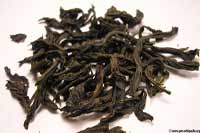Science Suggests Weight-Loss Soda Drinks May Have Opposite Effect
Artificially sweetened drinks may not be the healthy alternative that people think. In fact, seeking out sugar-free drinks as a way to reduce the risks of obesity may actually be having the opposite effect.
According to a review of the research written by a leading professor of psychology and neuroscience, soft drinks that have non-calorific sweeteners in place of high-energy natural sugars - diet cans of soda - may actually cause negative effects on the metabolism if consumed frequently.
The evidence-based opinion piece is written by Prof. Susan Swithers and published today in the journal Trends in Endocrinology & Metabolism. Swithers says: "Frequent consumption of high-intensity sweeteners may have the counterintuitive effect of inducing metabolic derangements."
Swithers has looked over a body of research to come to her hypothesis that turning to dieting drinks that contain aspartame, sucralose and saccharin - as opposed to cutting the risks of obesity - may in fact be increasing the likelihood of:
- Excessive weight gain
- Metabolic syndrome
- Type 2 diabetes
- Cardiovascular disease.
Swithers says:
"The concern that these non-caloric sweeteners might not be healthy is a message that many people do not want to hear, especially as the prevalence of artificial sweeteners increases."
Big business is making and distributing drinks and foods containing non-calorific sweeteners. Public health doctors are also driving the pressures to tackle the rise of obesity and chronic disease, such as diabetes and cardiovascular ill-health. But Swithers is calling for greater scientific understanding, which she says should go all the way up to governments and politicians.
"When it comes to making policy decisions, it's more important than ever that the science is considered and that the public understands what the science says in order to help them make the best health decisions," Swithers says.
Current political ideas to regulate or tax soft drinks as part of the battle against obesity do not take diet drinks into consideration because they are perceived as healthy. The author of this latest review of the evidence believes the science should be bringing a change in this perception.
The paper asks scientific questions about complex relationships between consuming sweeteners and physiological and brain reactions that affect metabolism.
Professor Swithers essentially proposes that regularly consuming sweeteners results in people having "weaker responses to sweet tastes."
Swithers explains that people have brain-stimulating taste responses to artificial sweeteners but that the additives then fail to deliver calorific energy to the body. Within the framework of "Pavlovian conditioning principles," she says, the counterintuitive effect of sweeteners on weight gain may be explained by "weakened learned responses" to food and drink.
She says that this effect may come from "non-calorific sweet tastes that are not accompanied by typical and expected post-ingestive consequences such as post-prandial release of insulin, GLP-1, orGIP, or activation of brain regions sensitive to energy or reward."
Written by Markus MacGill-
Ephedrine Versus Ephedra: Whats The Difference?
Ephedrine versus Ephedra: Whats the Difference? All of us that are in
-
How to Start Losing Tummy Weight After Pregnancy
One of the hardest times to lose weight is losing tummy weight after p
-
Electric Bikes: Why They Are Great For Our Environment!
The electric car is fast gaining ground and for good reason. Not only
-
Low Carb, High Protein Diet; Flavor of the Month?
It’s not necessarily a secret that most of the fat loss diets be
-
The 4 Fears That Could Be Preventing You From Losing Weight
-
Tips on How to Lose Weight Properly
The absolute best diets entail consuming much less and exercising m
- DON'T MISS
- Resistance Training For Weight Loss
- Food Addicts Anonymous Weight Loss Review
- Be Fit Using Visualization
- 5 Daily Steps To Effective Weight Loss
- An Incredible New Weight Loss Product Your Brain
- A Lifestyle Change
- What is the Best Exercise to Help Lose Weight?
- Gastric Bypass Surgery Intended for Appetite Suppression
- How To Do Your Weight Loss Diet Right
- Weight Loss After Pregnancy – What Every Mother Should Know!




